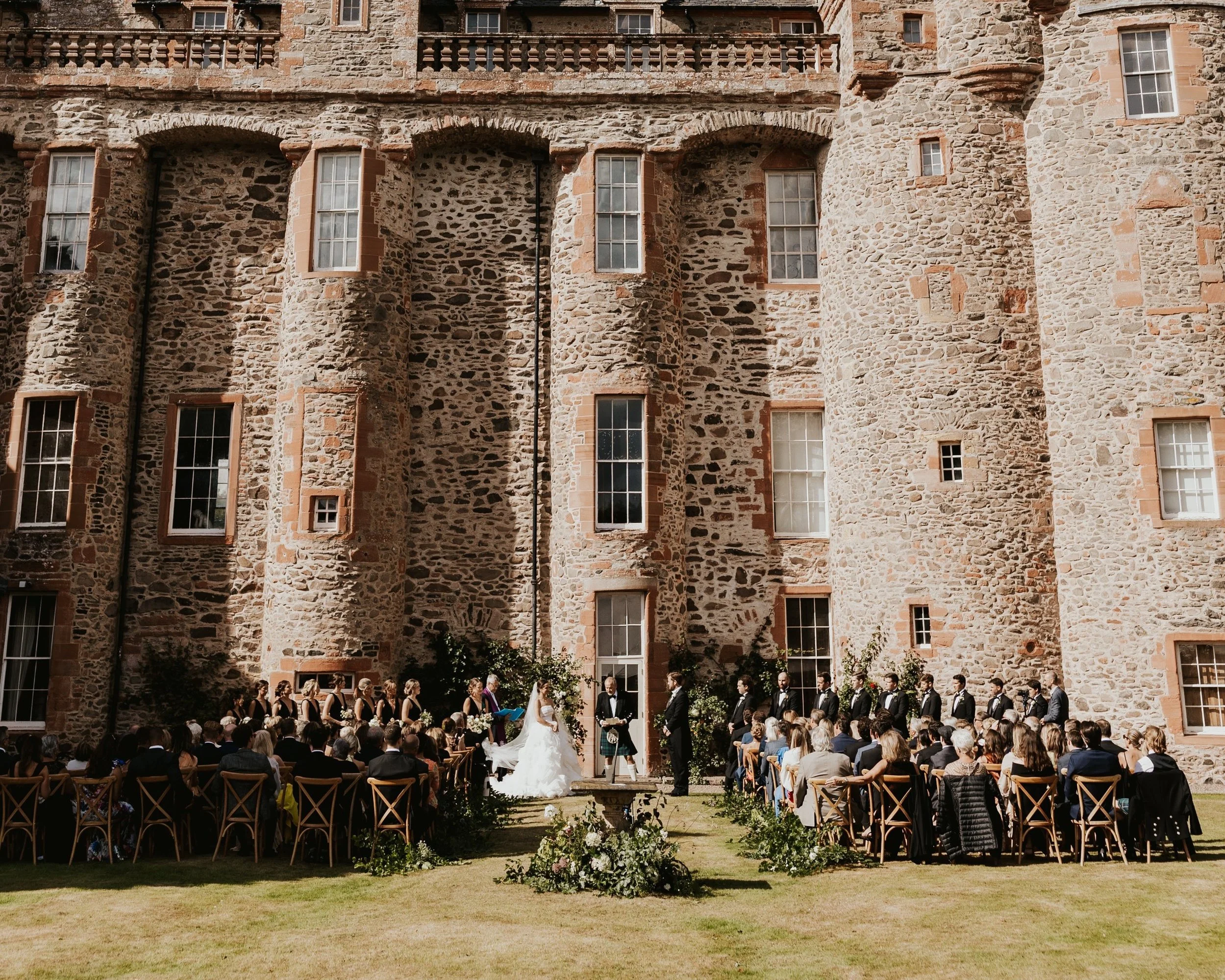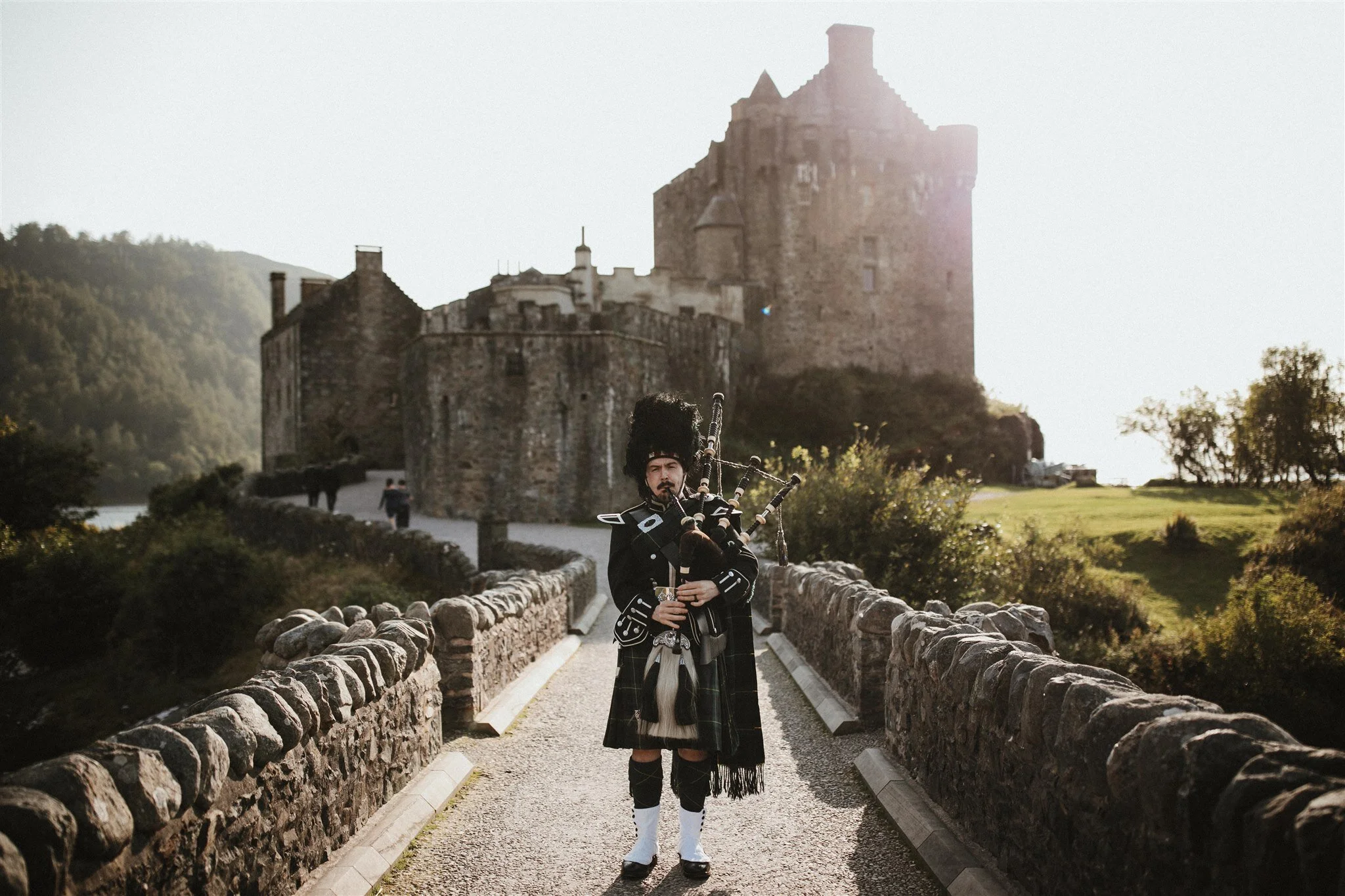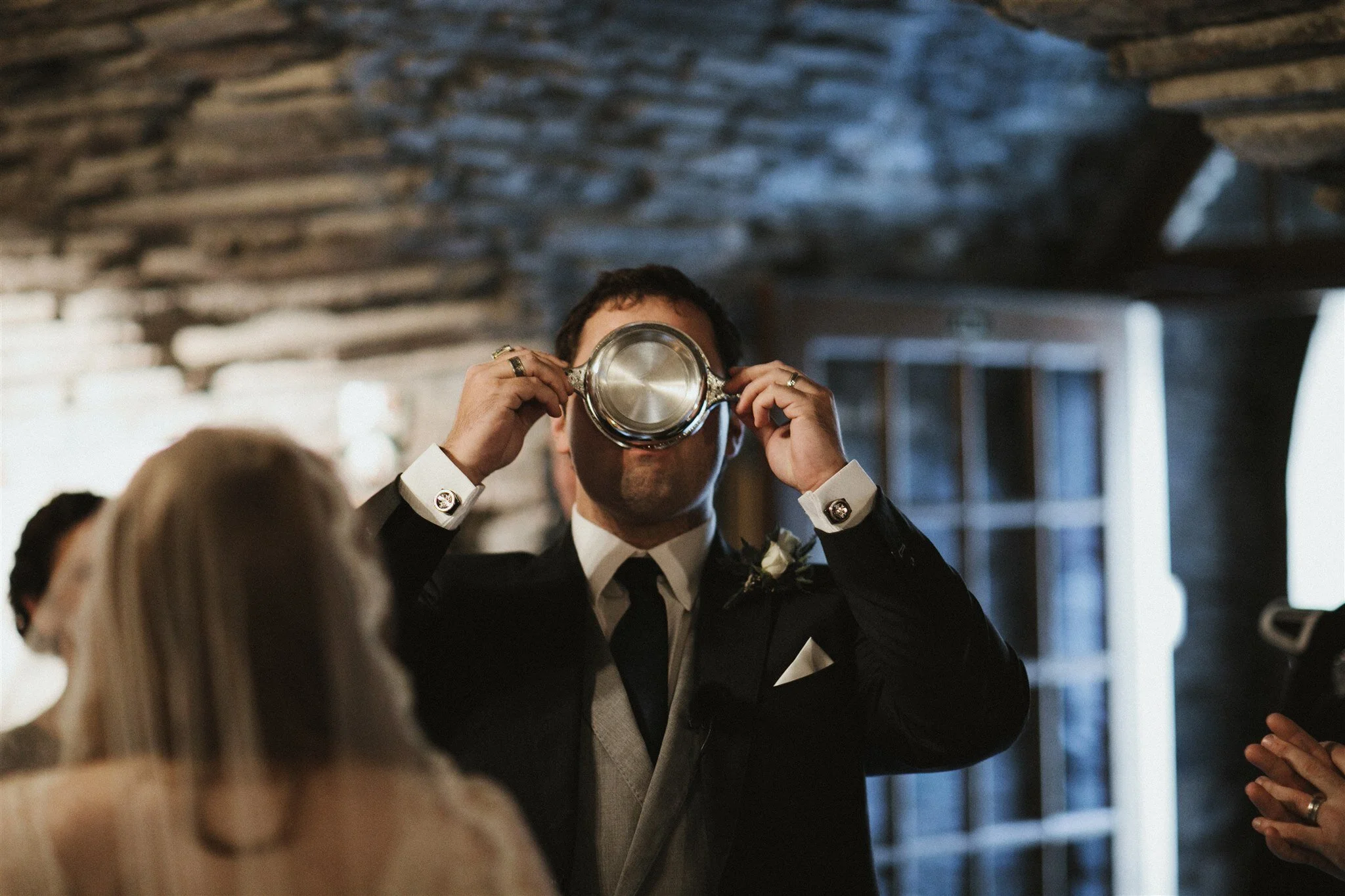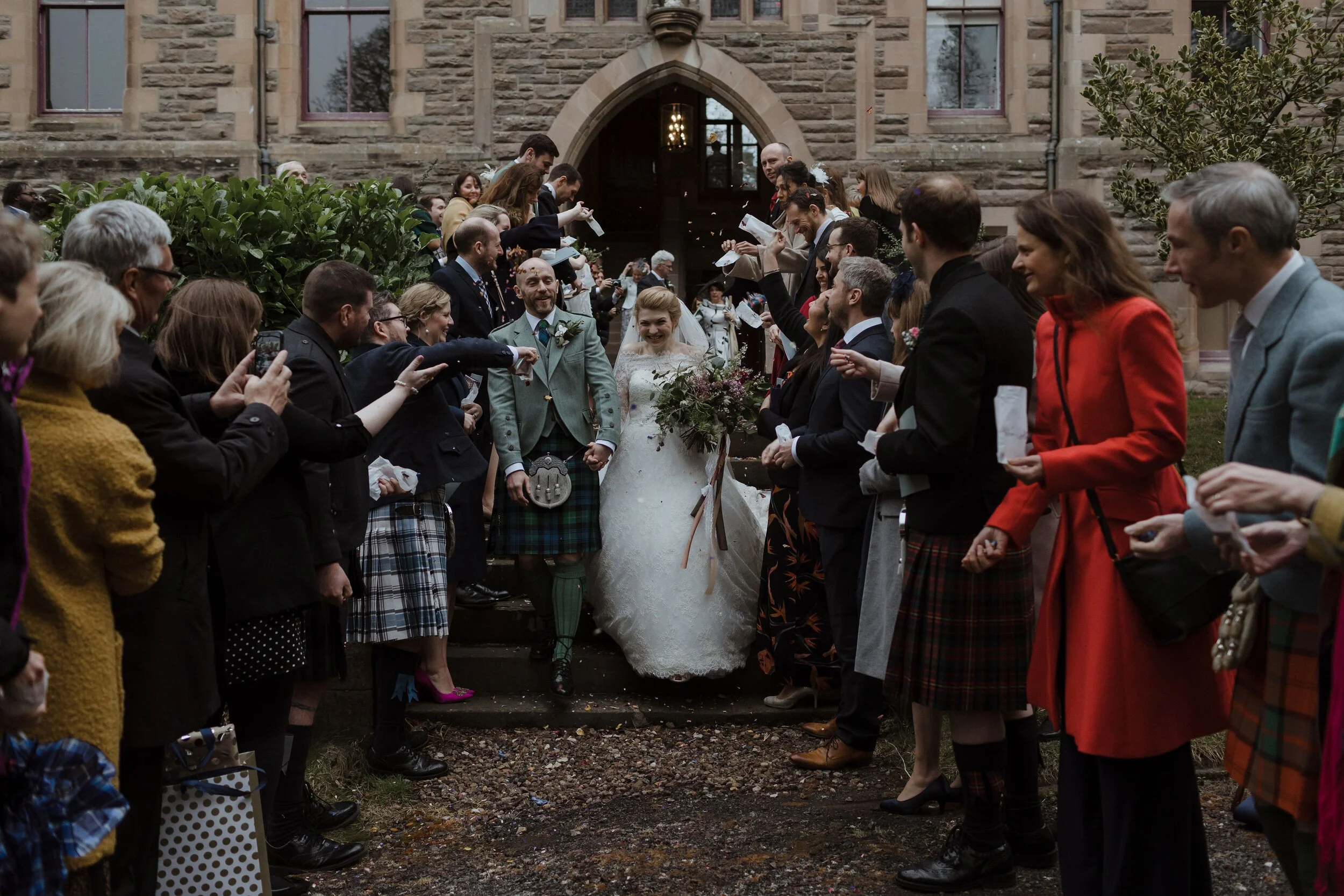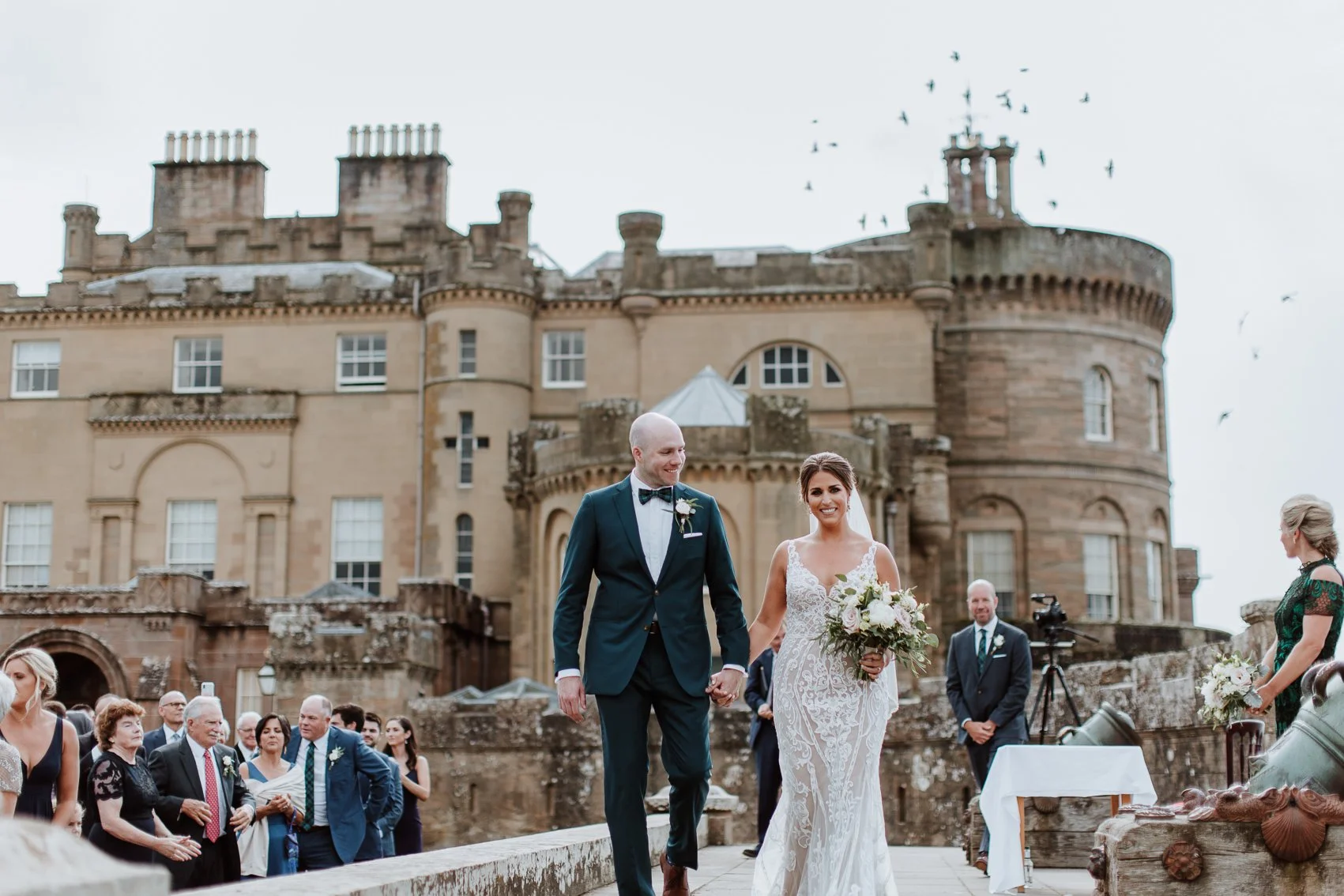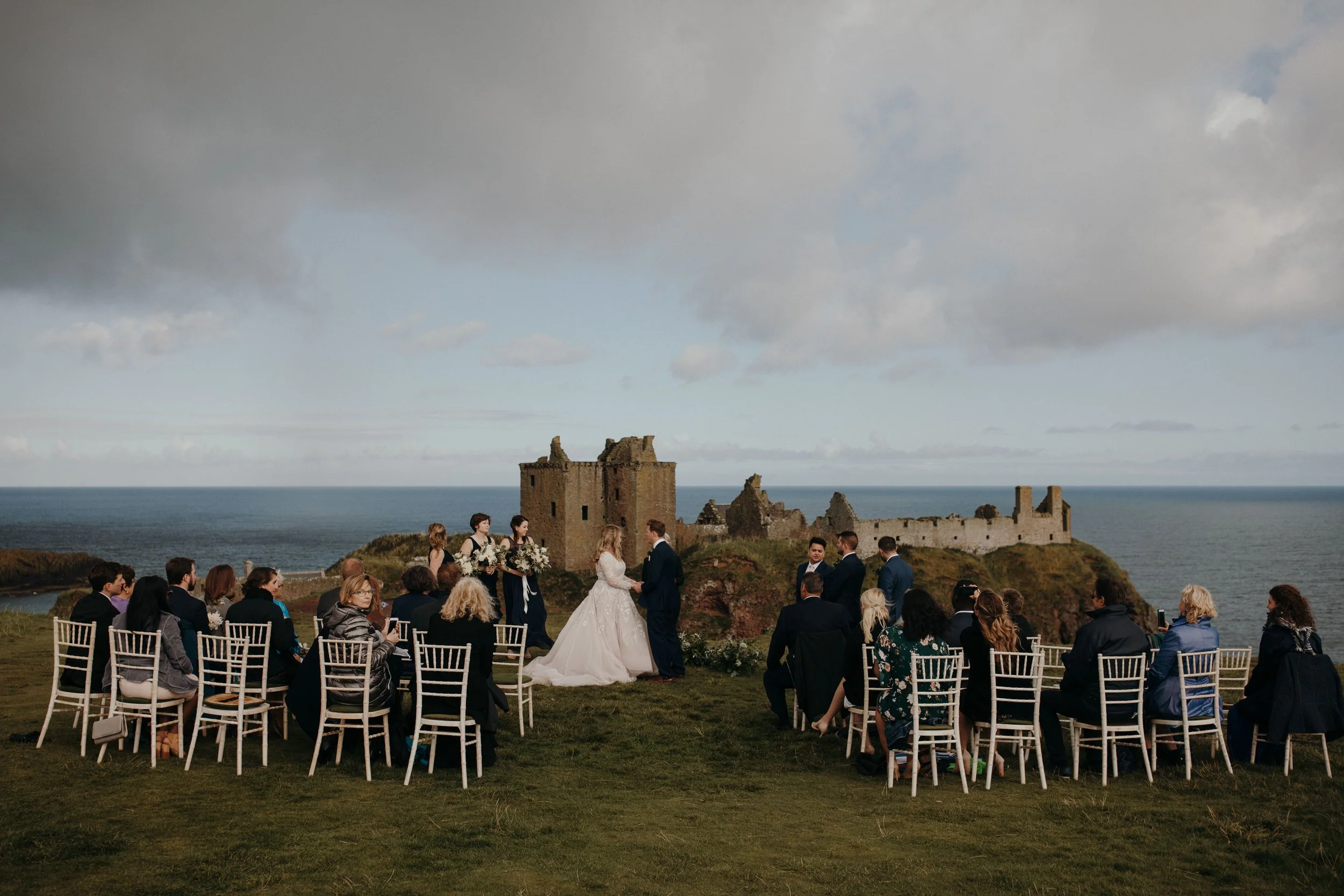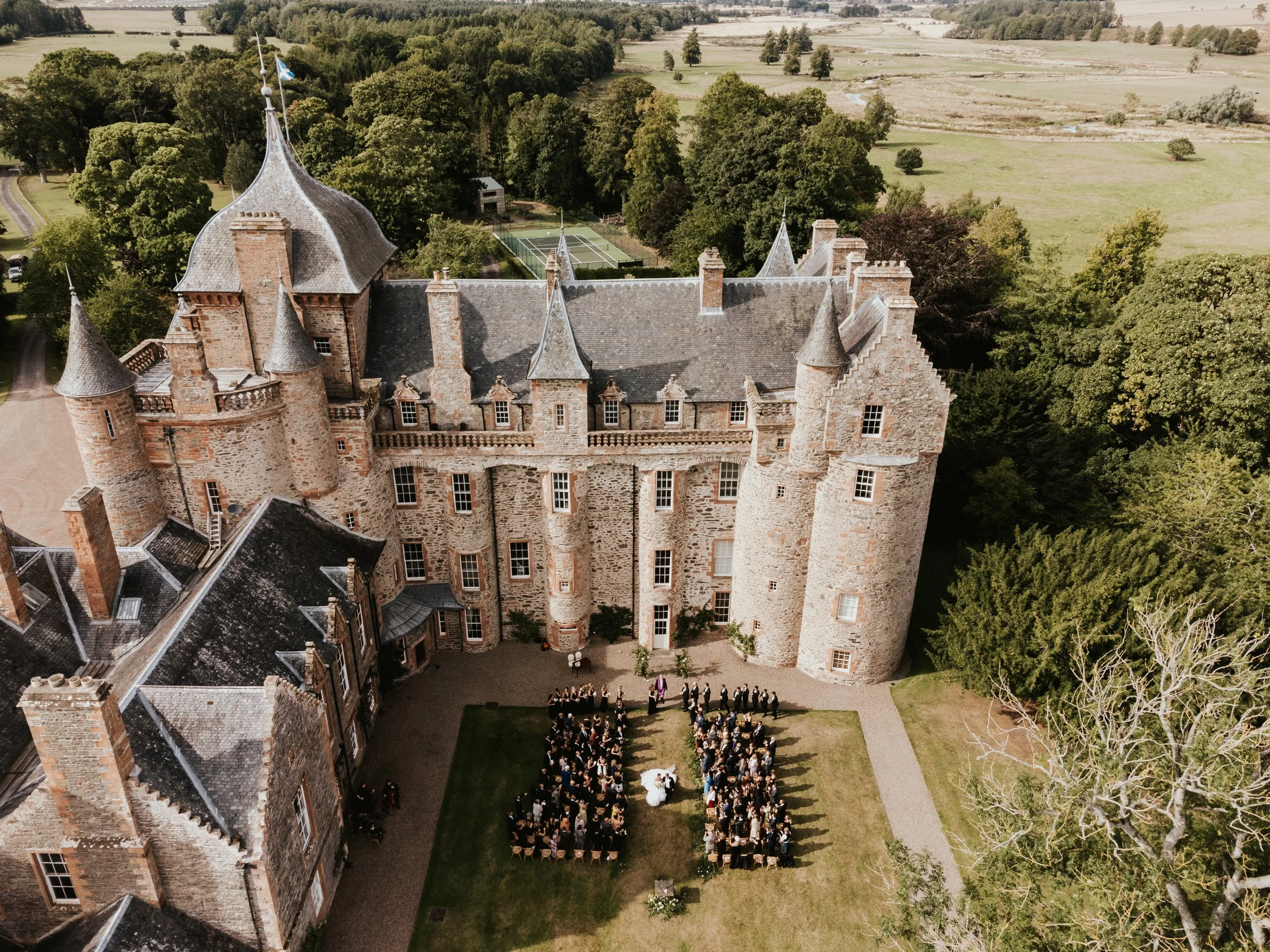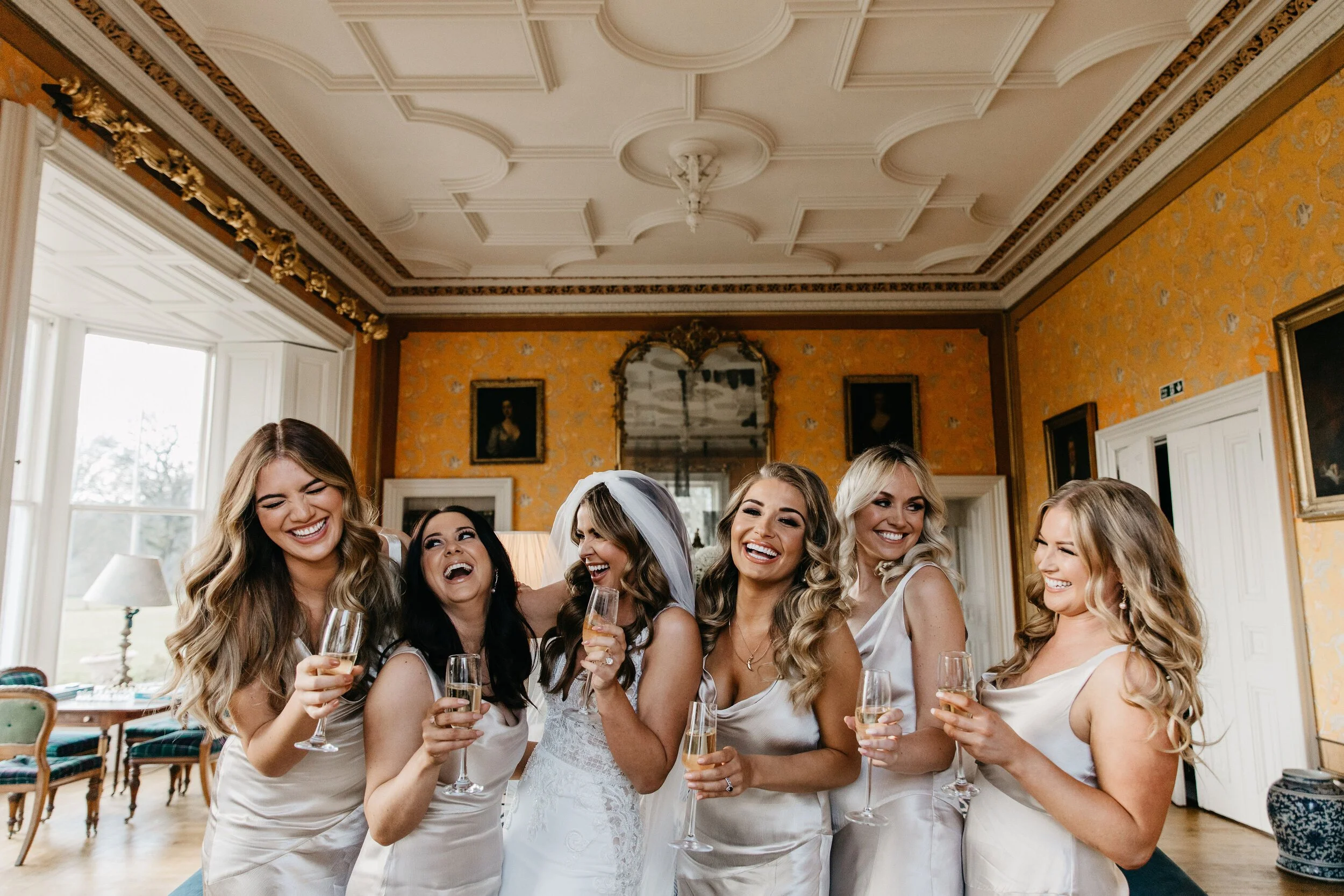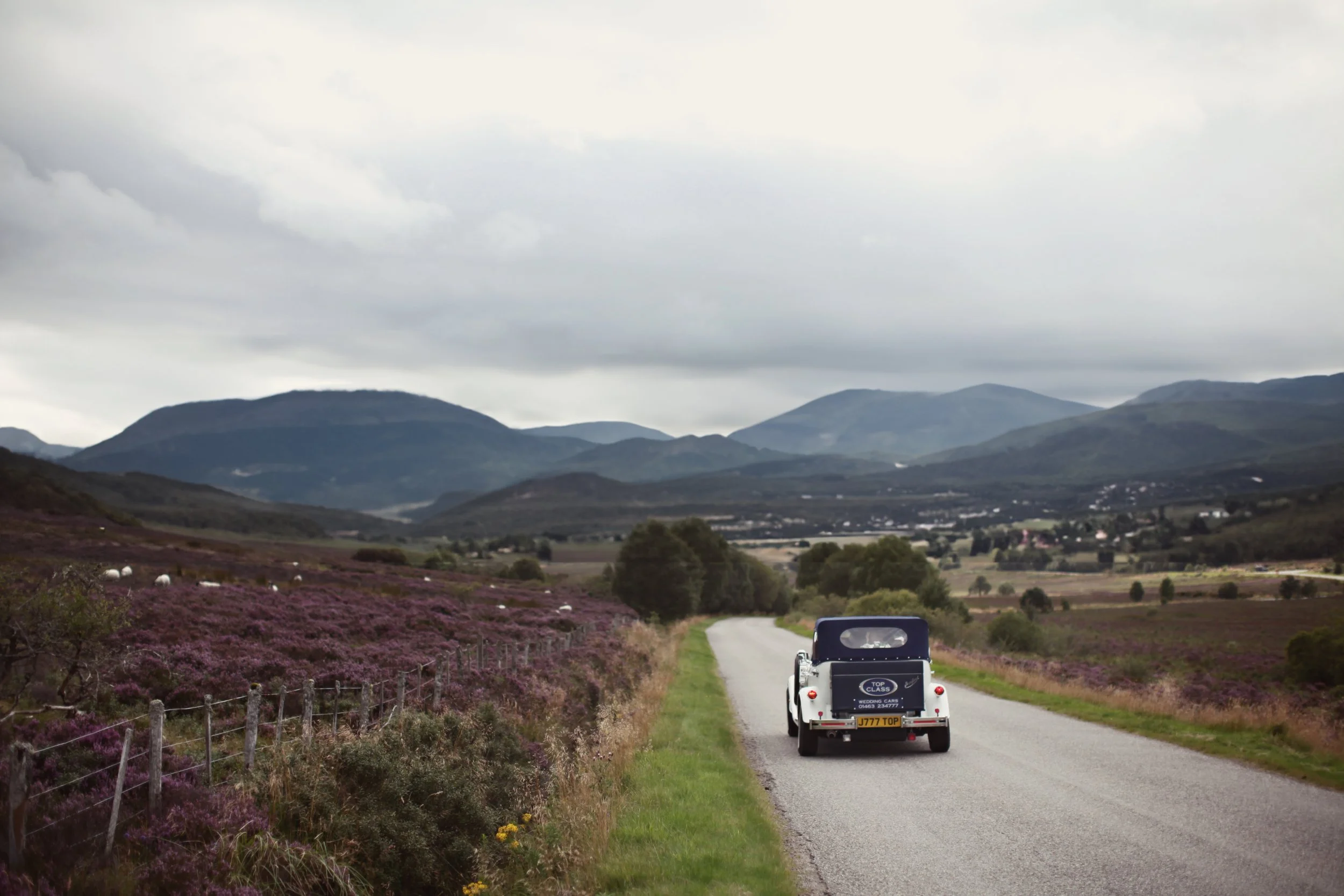A guide to your dream wedding in Scotland
Planning a luxury destination wedding can feel like a daunting task with lots of different factors to consider, however, our comprehensive guide is designed to provide you with all the information you need to help bring your dream Scottish wedding to life!
Why choose Scotland for your wedding
Natural beauty
From rugged coastline and vast mountain ranges to sweeping sandy beaches and bustling cities, it’s no surprise why Scotland has become recognised across the world for its breathtaking scenery. Drawing couples from near and far, Scotland’s natural beauty is among one of the many reasons why couples decide to pick Scotland as their special wedding location.
Spectacular venues
Alongside its impressive landscapes, Scotland is also home to a whole host of outstanding wedding venues, many of which are authentic historical Castles, Palaces and Estates. Whether you’re looking for a remote castle nestled away in the heart of the highlands or a contemporary hotel venue with wide-stretching city views, Scotland has it all!
One of the many draws for couples tying the knot in Scotland is the rich history that the country holds. Filled with historic ruined castles and monuments dating back as far as the 11th century, Scotland is certainly not short of impressive history.
Rich History
Ancestry
For some, having a wedding in Scotland allows them to embrace their lineage or direct connection to the country. Getting married in your ancestral homeland can help you to embrace your true Scottish heritage.
Scottish wedding traditions and customs
Whether you intend to host a traditional style wedding or to do things a little differently, there are many ways in which you can build Scottish culture and tradition into your wedding in Scotland.
Kilts
What’s a Scottish wedding without a kilt? Scottish tartan is an ancient piece of clothing that dates back as far as the third or fourth century AD and became popular during the seventeenth and eighteenth centuries amongst Scottish highlanders.
During Scottish weddings, you’ll often find the groom and groomsmen wearing the same tartan on their kilts - typically the clan tartan representing the Scottish family name. You may also find some brides deciding to incorporate a touch of tartan into their wedding outfit in the form of a sash, shawl or ribbon.
Scottish Piper
For many, when they picture a traditional Scottish wedding they imagine a proud piper playing a fierce tune from the bagpipes - an instrument that has come to symbolise Scottish patriotism.
Commonly the piper will play during the start and end of a Scottish wedding ceremony, as the couple are piped into their wedding venue surrounded by cheering friends and family.
The Scottish Quaich
A Scottish Quaich (also known as a derivative of the Gaelic word ‘cuach” translating to ‘cup’) is a two-handed cup that is used by a couple during their wedding ceremony to drink from as a first toast. The Quaich is normally filled with whiskey and requires both the bride and groom to carefully drink from each side, this action represents trust between the newly married couple.
Handfasting
Handfasting is a Celtic tradition that signifies the coming together of two people and is usually performed by placing the bride and groom’s hands on top of one another and physically tying them together with a piece of ribbon or cord. This practice symbolises the eternal love and bond that a couple decides to make on their wedding day.
Sixpence in the bride's shoe
The sixpence in the bride’s shoe is a tradition seen across weddings in Scotland, originating in Aberdeen and Angus. The father of the bride would typically pop a sixpence piece into his daughter's shoe before she went to walk down the aisle, this was to symbolise luck and prosperity in her marriage. Unfortunately, as sixpence coins are no longer readily available, many wedding parties who decide to adopt this tradition seek out a sixpence online.
Legal requirements and marriage laws in Scotland
According to the Scottish Government, there are a handful of requirements for couples looking to get legally married in Scotland. For example, in Scotland you have the option of various different marriage ceremonies including civil, religious/belief, humanist and same-sex, making Scotland an attractive choice for a variety of couples.
In addition, another appealing factor for couples looking to get married in Scotland is the no residency requirement. This means you don’t need to be a resident or citizen to get legally married in the country.
In terms of documentation, you also have the opportunity in Scotland to skip past the paperwork and move straight onto the symbolic ceremony, saving you significant amounts of time and money filling out paperwork or applying for special visas.
However, a notice of marriage must be submitted at least 29 days prior to the date of your wedding - this is a legal document that states the details of your wedding. Alongside this, a marriage schedule must be obtained from the local registrar for the wedding to be legally recognised. During the ceremony, two witnesses must also be present to sign the marriage schedule, validating and confirming the marriage.
Planning a wedding in scotland
As the engagement bliss begins to fade, it’s now time to start thinking about planning your big day. With lots of different factors to consider, knowing where to start may feel slightly overwhelming.
To help the process of planning your wedding flow as seamlessly as possible, we’ve shared some of our top tips gathered from our years of experience as wedding planners…
-
The very first step in planning your wedding is to decide upon a suitable budget. This is a crucial part of the wedding planning process and will act as a driving force behind your decision-making. When discussing budgeting, you should consider any contributions coming from external parties such as family members or friends as they may want to have ownership or control over certain parts of the planning in return for their contribution.
Additionally, you need to be realistic about what you can afford and when. Many smaller local wedding vendors do not accept credit card payments so you need to be financially comfortable in paying deposits or payments upfront. This may be tricky if you’re juggling lots of large financial commitments over a short time period, so it’s best that you look ahead at your finances and savings.
On the other hand, if you’re considering enlisting the help of a wedding planner then you should do your research on the estimated costs associated with hiring a professional. In our previous blog post, we answer some of the most common questions surrounding the costs of hiring a UK wedding planner depending on their role in your wedding.
-
Take your time to carry out thorough research on wedding suppliers and vendors, you can start simply by searching online or having a browse via social media. Remember that the list of suppliers provided by venues isn’t always the be all and end all, it can often be a good idea to look beyond this list, particularly if you’ve a specific style in mind.
Don’t be afraid to ask for recommendations from family and friends as they may have a couple of trusted suppliers up their sleeve that they can connect you with. Similarly, if you’re considering hiring a wedding planner then make sure to have a look at their websites, portfolios and customer testimonials, this will give you a good indication of the level of service they provide.
-
Planning a wedding goes beyond just organising the big day, as weddings often consist of various different events and activities, such as rehearsal dinners, welcome parties and bridal parties. Each of these events can be broken down into various moving parts, for example, a rehearsal dinner will require a venue, food, transportation and more.
Welcome parties have also become popular amongst our clients, however, are commonly underestimated in terms of budget. This highlights the importance of spending time considering the ins and outs of the events surrounding your wedding day, as you don’t want to be agreeing to host events that you can’t afford.
-
Putting together your guest list may seem like an easy job but can quickly get out of hand. To make the process easier, we recommend starting by sitting down with your partner and writing out a rough list of everyone both you and your partner would invite if money and space weren’t an issue. Begin with immediate family and close friends then slowly expand your list to others such as work colleagues, distant relatives, children, partners and whoever may be relevant. From here you can then begin to slowly trim down the list to a size that feels appropriate to your budget and needs.
The easiest way to do this is by highlighting ‘non-negotiable’ guests, these are people that you couldn’t imagine not being part of your wedding day. These people often end up being involved as a member of your bridal party or groomsmen.
-
The wedding ceremony is often the most memorable part, as it’s the main point in the wedding where the happy couple declares their love, promises and commitment to one another in front of their guests. Planning your ceremony will typically be dependent on whether you decide to have a religious, spiritual or civil ceremony.
Religious wedding ceremonies are usually held when one or both members of a couple have grown up in a religious setting. This type of ceremony is held in a house of worship by a religious official such as a minister, priest or rabbi. The ceremony itself will often be guided by religious practices such as the order of the ceremony, vows, songs and readings.
Spiritual ceremonies in Scotland go beyond traditional religious rituals and celebrate the spiritual connection between a couple. Conversely, a civil ceremony includes no religious or spiritual element but still acts as a legally binding wedding. This form of ceremony is often adopted by couples who want more control over the ceremony practices such as writing their own vows or would like to get married in a non-religious venue such as a barn, beach, forest or castle.
Get in touch with a member of our talented team
At Timeless White, we offer free consultations available in person or over Zoom, allowing us to understand your wedding requirements and how we can help bring your dream wedding to life.
How to choose your dream wedding venue
Picking your wedding venue is one of the most exciting parts of planning your big day and with so much to choose from, we want to help you make sure you’re making the right choice by sharing some of our top considerations.
-
A dream wedding venue should be a place that both you and your partner feel comfortable and happy with. A great place to start when choosing your dream wedding venue in Scotland is to start by writing down a list of things both you and your partner would like in an ideal venue. For example, perhaps both of you enjoy the history and culture that Scotland has to offer, therefore, a castle or stately home wedding venue may be the best choice. It’s very important to stay true to who you are as a couple, as the last thing you want is for your wedding day to feel inauthentic.
-
As previously mentioned, you’re spoilt for choice when it comes to selecting your dream wedding venue in Scotland. However, one of the most important factors to consider is how much you’re willing to spend on a venue for your wedding day.
If you’re set on a specific venue that turns out to be slightly over your budget then consider looking into ‘out of season’ days or getting married on a weekday. Typically couples flock to get married in the summer months, particularly on weekends, however, this can prove to be slightly more expensive than weekdays or alternative months such as April or October.
There are also a few common fees that tend to be forgotten by couples when budgeting for their big day such as tent/marquee site fees, VAT and additional charges for access to the venue days before for setting up/building. If you’re looking to save a little extra money, then you should look into whether or not the venue offers a corkage service, this gives you greater control over the costs associated with bottles of alcohol at your wedding.
-
The location plays a large role in your big day as you want to make sure the venue is accessible for your nearest and dearest. For example, if you’ve always dreamt of having a remote wedding venue hidden in the picturesque Scottish highlands but have lots of guests travelling from different locations then you’ll need to consider the cost of accommodation and transport.
Despite some locations in Scotland being a little more remote than others, in our experience, guests tend to fly to airports such as Edinburgh and Glasgow and then travel to the venue, regardless of the location. For many, visiting Scotland is a once in a lifetime opportunity and guests are often excited to explore what this beautiful country has to offer by stopping off at various different locations, particularly Edinburgh.
-
Before you begin falling head over heels with a venue it’s essential that you map out a rough guest list in order to estimate the numbers. By having a rough idea of how many people you’ll be expecting at your wedding you can then tailor your wedding venue accordingly. For those looking to have a large guest list, you’ll ideally want a venue that comfortably holds your capacity without feeling cramped, alternatively, if you’re looking to hold a smaller wedding then you should find a venue that doesn’t feel too large and empty.
Most historical venues in Scotland aren’t suited for more than 120 people indoors, this is due to the fact that when these buildings were first built, having a party with 80 people was considered big! You’ll need to bare this in mind when selecting a venue, as if your numbers are over 150, you’ll have far less choice of historical venue options without having to build an additional tent or temporary structure to accommodate guests.
-
It may seem obvious but it’s always worth visiting more than one wedding venue to get a feel for what you like and dislike. If you’re unsure of what style venue you would like then you should try visiting a handful of different style venues. Each venue will have something different to offer, for example, some venues may sell all-inclusive packages while others purely offer the event space
Capturing your Scottish wedding
Whether you decide to exchange vows amongst the stunning backdrop of rolling Scottish hills or declare your commitment to one another in the presence of an ancient church, a skilled wedding photographer and videographer can ensure that every moment of your big day is captured for you and your loved ones to look back on in years to come.
When selecting the perfect wedding photographer or videographer you should have a rough idea of how you would like the video or photos to turn out. For example, you may want your photos to have a contemporary or creative spin on them, therefore, selecting a photographer that specialises in traditional or classic shots may not be the best choice for you.
Once you have established the ‘style’ of photos or videos that you would like to be captured, you can then begin the search. Many photographers or videographers have a portfolio of work available upon request that gives clients a taster of the overall style and diversity of their work.
Top tips for a seamless wedding in scotland
-
The last thing you want before you get married is to be rushing about trying to book and organise last-minute details. Planning your wedding in advance gives you peace of mind that everything is covered, which is why many people decide to hire a wedding planner. Additionally, being ahead of the game gives you a better chance at securing your first choice of venue or vendor, reducing any disappointment when it comes to key aspects of your wedding.
-
The unpredictable Scottish weather can strike at any point - regardless if it’s the peak of summer or not. If you’re planning on having an outdoor wedding in Scotland then it is always a sensible idea to have a backup plan in case the rain decides to make an appearance.
-
For those with wedding guests travelling from further afield, it’s important that you provide your guests with all the relevant information needed such as travel tips, local traditions, nearby amenities or customs they should be aware of. In addition, if you decide to have your wedding and reception at different venues you will need to consider safe transportation to and from the locations.
-
Sometimes it can be easy to get caught up in the planning and celebrations that you forget to take a minute to really enjoy and cherish the moment. Allocating some time during your wedding day for just you and your partner can be a helpful trick to allow you both to appreciate the experience.
Pre and post-wedding activities
Pre wedding activities
Why not kick off the wedding celebrations with a welcome dinner? Whether you opt for a more formal or informal option, having a welcome dinner is an excellent way for your guests to mingle and get to know one another ahead of the big day.
Alternatively, you could start the celebrations with a fun Scottish-themed activity such as a guided tour of one of the local attractions or a whisky tasting experience - whatever best suits your interests and budget.
Post-wedding activities
Carry on the exciting wedding celebrations with a mini-moon exploring the impressive sights and attractions that Scotland has to offer. From taking a short trip to explore the spectacular scenery of Scotland's west coast to treating yourself to a luxurious hotel stay in Edinburgh, Scotland has plenty of memorable activities and landscapes for you to explore.
-

K & T.
-

S & A.
-
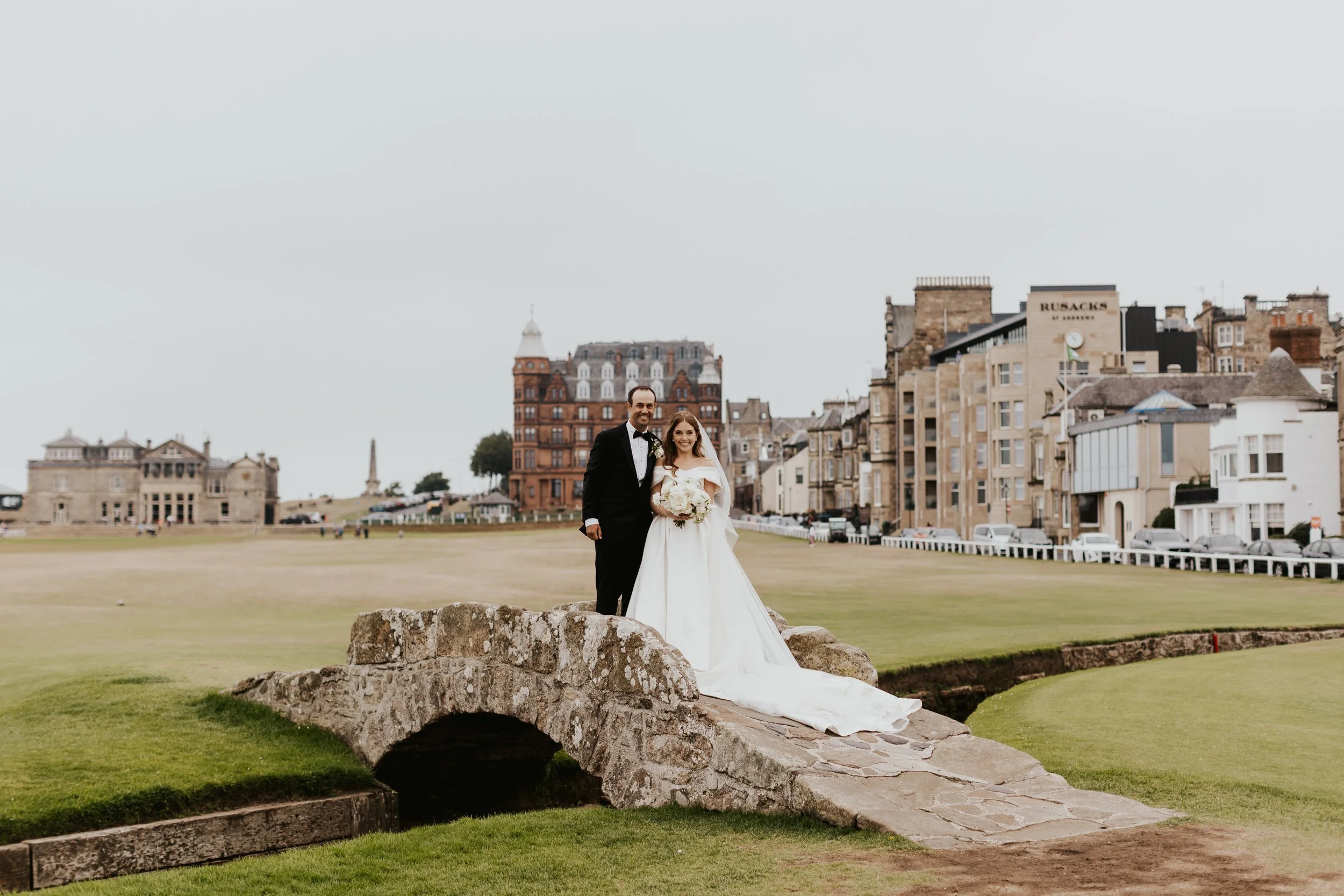
E & A.


